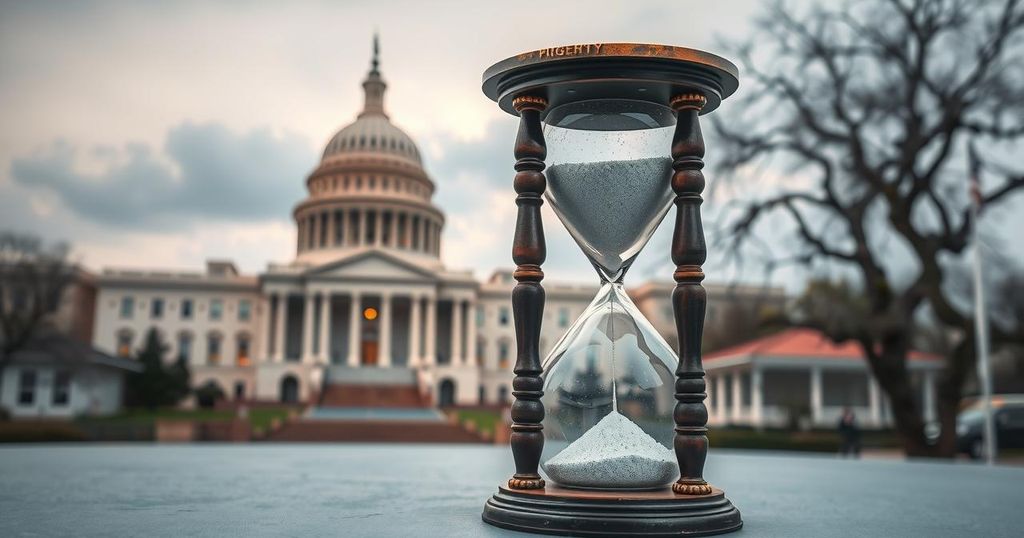South Sudan is in an “extended transitional period” with a new deadline of February 2027 for fulfilling commitments under the 2018 peace accord. UN officials express urgency for progress amidst deteriorating conditions, including security concerns, humanitarian crises, and operational challenges faced by UN peacekeepers. The situation remains precarious as elections approach in December 2026, with significant gaps still to be addressed.
As South Sudan embarks on a so-called “extended transitional period,” the United Nations’ chief envoy has cautioned that time is limited to fulfill commitments outlined in the pivotal 2018 peace accord, particularly with a fresh deadline set for February 2027. The Revitalized Peace Agreement, which aimed to terminate a prolonged conflict, initially established a three-year timeframe for elections and democratic governance. However, this transition has been postponed multiple times, leaving significant political, security, and governance milestones unmet.
Following the last extension announced in September, new general elections are slated for December 2026. Special Representative of the Secretary-General for South Sudan, Nicolas Haysom, recently informed Security Council ambassadors that while South Sudanese citizens have exhibited remarkable patience, they are eager for tangible advancements. “There is a strong desire for the leaders to focus on the benchmarks set out in the peace agreement – without further delay,” he stated, emphasizing the urgency for action.
Despite some progress, South Sudan faces substantial gaps, particularly concerning the impending elections. Although frameworks for security management and community violence reduction have been established, crucial conditions remain unaddressed, including the complete deployment of unified security forces and voter education initiatives. Mr. Haysom remarked, “We have not yet seen the previously promised harmonized workplan with an operational timetable for elections.”
Intensifying security issues also plague the nation, with communal violence particularly harming vulnerable populations such as women and children. Recent conflicts between armed factions in Western Equatoria highlight the instability within the security landscape. Additionally, the ongoing conflict in neighboring Sudan has exacerbated conditions in South Sudan, leading to violent incidents in Juba linked to reports of South Sudanese citizens being harmed.
The humanitarian situation continues to deteriorate, with over one million refugees from Sudan adding to the already alarming 9.3 million individuals in need of urgent assistance. Escalating inflation, currently at 107 percent, combined with unpaid salaries for government workers for ten months, exacerbates the economic crisis facing the nation. Deteriorating health conditions are reflected in over 23,000 cholera cases, particularly affecting remote regions with scant healthcare access.
The 2025 Humanitarian Needs and Response Plan targets 5.4 million people for critical aid, yet financial challenges remain acute. The United Nations has appealed for $1.7 billion to address these urgent needs in the current year. Alongside these issues, Mr. Haysom highlighted operational challenges faced by the UN peacekeeping mission, UNMISS, citing a government request for the mission to vacate part of its headquarters within a short timeframe, posing significant logistical hurdles.
Despite these circumstances, Mr. Haysom reaffirmed the UN’s ongoing commitment to support the people of South Sudan on their journey towards stabilization and democratization: “We will stand shoulder-to-shoulder with them,” he concluded, emphasizing the importance of collaboration in overcoming current challenges.
This article discusses the challenges South Sudan faces in its ongoing transition towards peace and democracy, rooted in the 2018 Revitalized Peace Agreement which sought to end years of conflict. Despite efforts to meet the agreement’s terms, multiple extensions and unmet benchmarks have raised concerns among UN officials regarding the urgency for reform and progress. The context is framed by significant humanitarian needs and a deteriorating security situation, compounded by external conflicts.
In summary, South Sudan stands at a critical juncture as it attempts to implement the commitments of the 2018 peace accord before the February 2027 deadline. Key challenges include unfulfilled benchmarks, increasing violence, humanitarian crises, and operational restraints on UN peacekeeping efforts. The UN’s continued support will be vital for the nation to navigate these multifaceted obstacles effectively.
Original Source: www.miragenews.com




